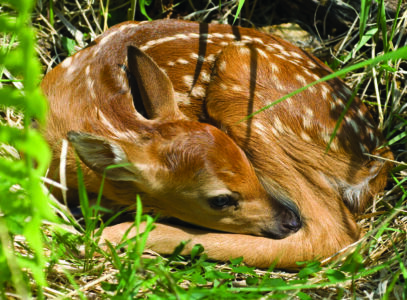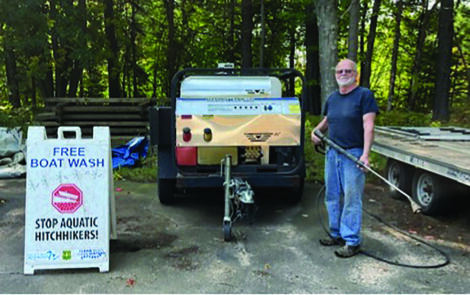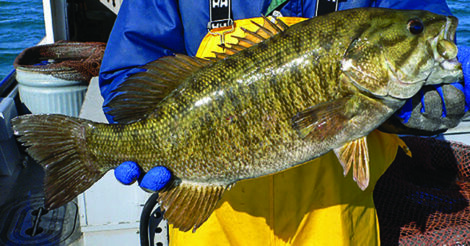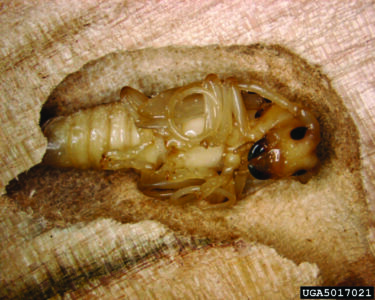A positive outcome
DNR to grant permit allowing wild fawn to stay at new facility
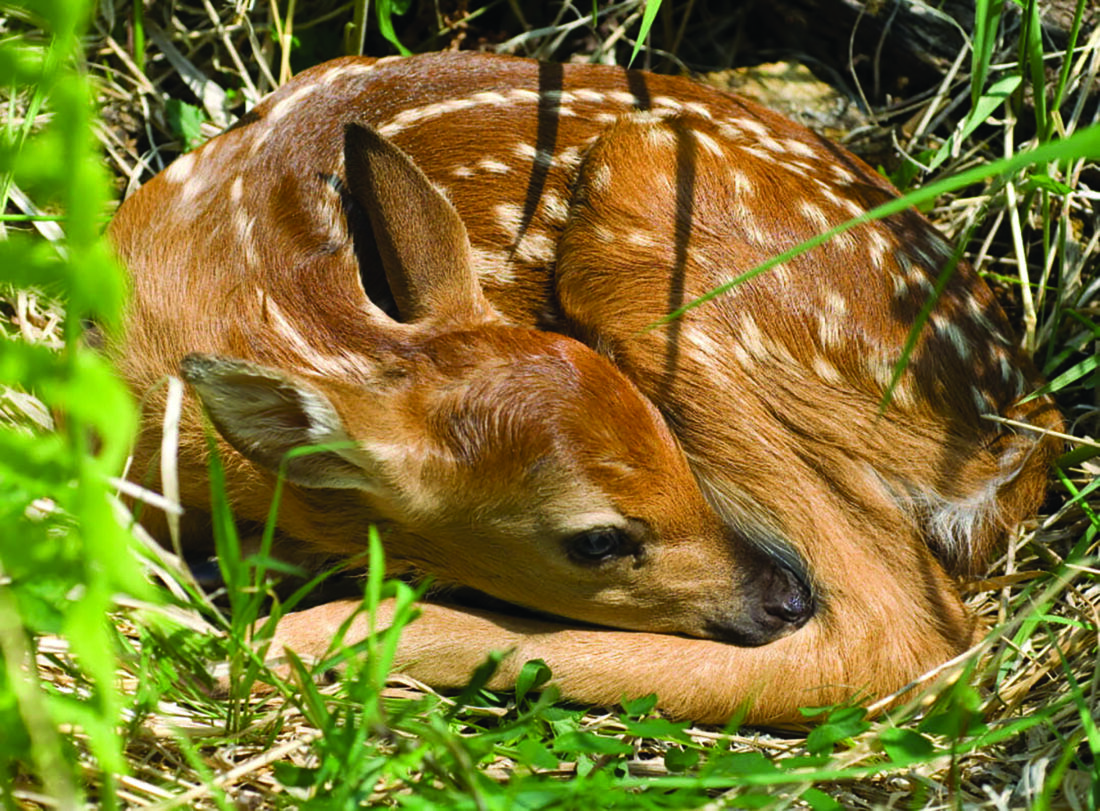
Michigan DNR photo. A fawn seen in this DNR photo, is not the same fawn mentioned in the accompanying story.
MARQUETTE — Michigan Department of Natural Resources officials issued a permit Friday morning allowing a partially sight-impaired wild fawn to be placed at a facility where native, live animals are kept for educational purposes.
Thursday afternoon, the facility submitted an official request to the DNR required to keep an injured or otherwise impaired animal, that because of its condition, is unable to be released back into the wild.
The name of the facility is not being released by the DNR to give the fawn time to acclimate to its new surroundings. The deer was brought to the facility by the Detroit Animal Welfare Group.
Typically, fawns aided by animal rehabbers in the spring must be released into the wild by Oct. 1 to give them time to reacquaint themselves with food resource locations before winter arrives.
“Fawns and other white-tailed deer are native species of wild animals that belong in the wild. They aren’t meant to be pets,” said John Pepin, DNR deputy public information officer. “If they remain in rehab facilities beyond early October and are later released, they won’t be able to survive in the wild over the wintertime.”
Therefore, fawns kept in facilities past the October deadline are typically euthanized as a humane outcome. In rare cases, such as this one, fawns are permitted to be possessed under a Live Animal Programs permit, which authorizes facilities to keep animals for educational purposes.
The permits are not granted without prior approval from the DNR’s wildlife division permit specialist. Animals are also examined by a veterinarian to determine their viability for an educational setting.
A veterinarian conducted an examination of the fawn, and the final report was received by the DNR Thursday afternoon.
With the vet report and the formal request from the facility in hand, DNR officials reviewing the matter agreed late Thursday afternoon to grant the permit.
All live animals possessed need to be permanently injured or otherwise non-releasable animals that have been legally held and donated by a licensed wildlife rehabilitator. These animals must have acceptable outside facilities available.
Meanwhile, the DNR remains in litigation before an administrative law judge with the Detroit Animal Welfare Group. Those cases, including one involving a coyote possessed by the group, are pending. Given that status, the DNR won’t have any additional comment on those cases until they are concluded.
“The plight of this wild fawn has generated tremendous bipartisan support from legislators and people across Michigan and beyond,” Pepin said. “It is encouraging to see so much goodwill directed toward Michigan’s wild animals. This is likely to help ensure support for wildlife conservation and sound wildlife management heading into the future.”

